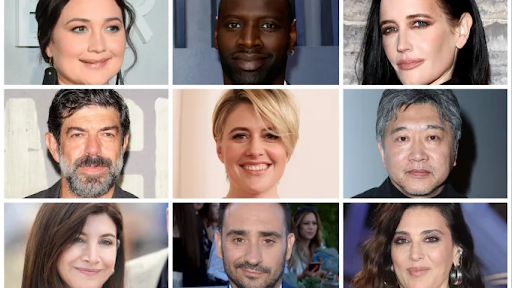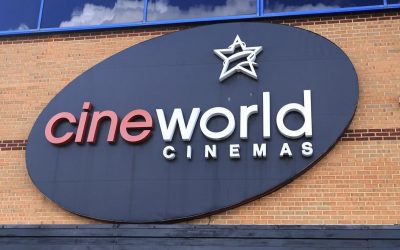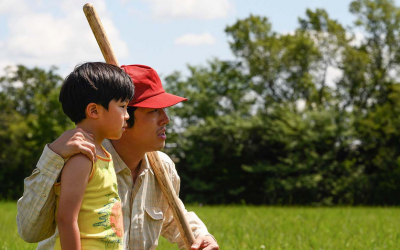Source: Deadline
No film festival can be complete without at least one jury (each of them comprised of a solid handful of people with experience and expertise in the world of cinema) to examine the films being presented to them, discuss the merits of these films with their peers, and ultimately come to a decision as to which of them are most worthy of recognition. If a film festival is to award a given number of cinematic works submitted to them, there must first be a carefully chosen group of people who are capable of deciding who and what are most deserving of such accolades. A smaller festival may have to settle for jurors who reside in the general area, but a larger festival may be fortunate enough to gather some of the most esteemed individuals currently working in the industry to comprise its juries. Such is the case for many of the world’s prestigious film festivals, with the Cannes Film Festival arguably being, if not the single most revered film-going event, among those most highly anticipated with each passing year. With the 2024 Cannes Film Festival set to take place later this month (from May 14th to May 25th to be precise), it too must find those most qualified to judge the films selected for this year’s event, and sure enough, it has indeed done just that. As a matter of fact, on April 29th, eight of the main Competition jurors were announced in addition to Greta Gerwig, who had already been revealed as jury president not too long ago. These nine individuals will be responsible for viewing all the films competing for the Cannes Film Festival’s most sought-after prizes, with the Palme d’Or, the festival’s equivalent of a Best Picture award, being its highest honor. Each of these nine people represent the best of what the art of cinema currently has to offer, and when looking at many of their past accomplishments, it’s not difficult to understand how.
As was previously stated, Greta Gerwig shall serve as jury president, a title that she took a surprisingly short amount of time to receive. Over the past seven years, Gerwig has garnered a great deal of attention with three highly acclaimed directorial efforts. Her 2017 film “Lady Bird” played a crucial role in elevating Gerwig’s status to something more noteworthy and respectable, and her 2019 adaptation of “Little Women” only furthered proved that she was a talented and artistically ambitious filmmaker. However, her most impressive feat so far is last year’s “Barbie”, a cinematic adaptation of the popular doll line that earned a Best Picture nomination at the Academy Award and became the highest-grossing film of 2023 (which it achieved in part due to its connections to the popular Barbenheimer craze, the result of it being released alongside Christopher Nolan’s “Oppenheimer”).
Also benefiting from the attention generated by an Oscar nomination is Lily Gladstone, one of the eight other jurors who will serve alongside Gerwig. An actor whose background is rooted in the indigenous Blackfoot and Nez Perce Tribal Nations, Gladstone has been able to get her career up and going with roles in such films as Kelly Reichardt’s 2016 film “Certain Women” and Morissa Maltz’s “The Unknown Country” in 2022. To most however, Gladstone is best known for her appearance in Martin Scorsese’s “Killers of the Flower Moon”, which premiered last year to great critical acclaim and garnered Gladstone a Golden Globe and Screen Actors Guild Award for her performance in the film.
Another relatively well-known actor who will join her fellow jurors at Cannes is Eva Green, whose balance of independently produced features and big-budget blockbusters has allowed her to build a reputation as one of the industry’s most flexible actors. The likes of 2006’s “Casino Royale” and 2014’s “300: The Birth of an Empire” have enabled Green to become a noteworthy name among mainstream film-goers, but films like 2011’s Perfect Sense” and 2019’s “Proxima” have proven that big audiences aren’t entirely necessary for Green to demonstrate her talents.
French actor Omar Sy has likewise proven successful as a performer in both his native France and in Hollywood, often finding himself rotating between the two regions whenever he has the opportunity to lend his skills to a given feature film. Having received his big break with 2011’s “The Intouchables”, Sy has since maintained his popularity with such French productions as 2013’s “Mood Indigo” and 2020’s “The Lost Prince” while also building a reputation in the United States with blockbuster fare like the “Jurassic World” franchise.
It was the “Jurassic World” franchise that also gave director J.A. Bayona, who helmed 2018’s “Jurassic World: Fallen Kingdom”, one of his biggest international hits to date. In his native Spain however, Bayona has perhaps received more acclaim for his 2007 debut feature “The Orphanage” and 2012’s “The Impossible”, which earned him a Goya Award for Best Director as well as four others for the film. His most recent directorial effort, “Society of the Snow”, has proven even more remarkable with a grand total of twelve Goya Awards received overall.
Hailing from the Italian nation is Pierfrancesco Favino, whose career bears strong parallels to Sy’s in that he too has made a considerable effort to take on a few roles in Hollywood releases in addition to his regular appearances in Italian cinema. One can find Favino in such blockbuster releases as 2009’s “Angels & Demons” and 2013’s “World War Z”, but those hoping to see him at his very best will likely find what they’re looking for in the Italian-made 2005’s “Romanzo Criminale” and 2020’s “Padrenostro”, the latter of which won him a Best Actor award at that year’s Venice Film Festival.
Far from a stranger to the Cannes Film Festival, screenwriter/photographer Ebru Ceylan can claim writing credits for such films as 2008’s “Three Monkeys” and 2011’s “Once Upon a Time in Anatolia”, which managed to win Best Director and Grand Prix prizes respectively. Many of the films Ceylan has been attached to have also been selected for competition at Cannes, with 2014’s “Winter Sleep” even being fortunate enough to take the Palme d’Or and uphold Ceylan’s reputation as a filmmaker worthy of admiration.
Nadine Labaki has also made multiple films that have received major recognition from the Cannes Film Festival, the most notable being 2018’s “Capernaum”, which benefited greatly from a Cannes Jury Prize win and later went on to receive Academy Award and Golden Globe nominations for Best International Feature. Prior to that, Labaki also released “Where Do We Go Now?” in 2011, which was presented at Cannes in the Un Certain Regard selection and helped to further establish her as a filmmaker worthy of attention.
Lastly (but certainly not leastly), there is Japanese filmmaker Hirokazu Kor-eda, who started his career making television documentaries before making repeated appearances at Cannes with a wide array of features ranging from 2001’s “Distance” to 2016’s “After the Storm”. His biggest achievement at Cannes so far, however, is his Palme d’Or winner “Shoplifters” from 2018, which later earned an Academy Award nomination for Best International Feature, although his Best Screenplay win for last year’s “Monster” proves that Kor-eda may not have fully peaked yet.
These are the nine jurors who will work together to serve this year’s Cannes Film Festival and determine which of the films to be included in Competition deserve to be honored most above all others. All of these filmmaker have benefited in some way from their own recognition awarded to them by Cannes, and hopefully they too will be able to allow the same to happen to at least one up-and-coming filmmaker hoping to make it big at this year’s festival.




